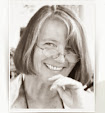 Love
increases endorphins – (you may know this). But that’s not all love does to us.
Love also increases nitric oxide, (no, not laughing gas –that’s nitrous oxide –
confusing I know!) Nitric oxide reduces blood pressure, improves blood
circulation, and decreases clotting as it relaxes your arteries. In the brain, love
activates areas associated with motivation, focused attention, making positive
choices and taking care of yourself.
Love
increases endorphins – (you may know this). But that’s not all love does to us.
Love also increases nitric oxide, (no, not laughing gas –that’s nitrous oxide –
confusing I know!) Nitric oxide reduces blood pressure, improves blood
circulation, and decreases clotting as it relaxes your arteries. In the brain, love
activates areas associated with motivation, focused attention, making positive
choices and taking care of yourself.
Love also deactivates pathways in the brain responsible for negative emotions such as fear and social judgment. Aside from being an explanation for why we say 'love is blind', it also explains the many reported acts of heroism and kindness by ordinary people in recent terror attacks and disasters here in the UK.
There are
many different types of love (seven according to the ancient Greeks) but they
all release chemicals and activate specific parts of the brain that propel us
to connect, to care, and to take caring action. Of the different types of love
studied over the centuries, the love of humanity, selfless love or what the
Greeks call Agape, is often referred to as the highest form of love and I
imagine that this is the type of love we see expressed in distressing times. It
is the antidote to terror and facilitates clear and values-based thinking. Feeling
such love gives us more clarity of mind and forward-thinking insights than any of
the fear-based rhetoric we are also currently exposed to. Love in its highest
form is not a touchy-feely approach, it actually makes us smarter. This is a biological
fact*.
When I
was seventeen, I read the first of what would become an endless array of books
and papers on the subject of love, ‘The Art of Loving’ by psychologist Erich
Fromm. It inspired a lifelong fascination with the subject in its many forms, a
fascination which is just as strong today as it ever was, not least because of
the one factor that has been present in every single book, study and paper:
that loving is part of the inherent human condition. We are innately programmed
to love in all its forms, whether physiologically, neurologically, or otherwise
by some means we have yet to discover. Fromm famously claimed that love is not
something that just happens to us, it is a decision we make.
So, in this time of hate and self-interest
all around us, to feel love and compassion for the victims of horrendous acts
of terror and violence is a no-brainer and for most people comes quite naturally,
but how, you may ask, can we ‘make the decision’ to sustain those feelings of
love in the process of seeking solutions, when it feels so much more natural to
slip into anger, even fury? I admit, it does take a conscious intention, and a
decision to refrain from what feels like the ‘natural’ path. Ironically,
acknowledging the anger and other emotions you might be feeling is the first
step, regardless of whether you choose to channel those emotions into a more
positive force. However, acknowledging doesn’t mean getting stuck in the
emotion. It is equally important to ask yourself whether the emotion is working
for you; i.e. is it depleting your health or enhancing it; fogging your brain
or helping you think clearly and creatively; is it helping you achieve the outcome
you want?
Making that observation and then
making the decision to change to a more productive, constructive emotion (and
yes, you can change what you feel), to
channel the emotion into a positive force, that decision is the first and most
important step you can make. The choice and intention to act from state of
centred love, must surely be the only way forward.
A famous quote by Jimi Hendrix
might be an appropriate conclusion: “Only when the power of love overcomes the love of power
will the world know peace.”
*For
references and information on research please email us at jennifer@AppliedEmotionalMastery.com

